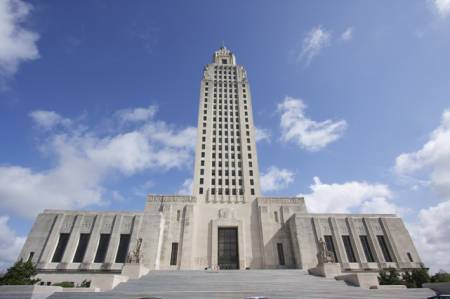
There has been much discussion about whether the second special session of the year was needed and, perhaps, even more about what it actually accomplished. That could likely be debated for days. But lawmakers did make some positive steps in several areas, even though much of the session was dominated by a single issue: how much power the governor should have in dealing with a health emergency like COVID-19.
Perhaps the most substantive issue staring lawmakers in the face this session had to do with the state’s Unemployment Compensation Trust Fund. That fund started the year with more with more than a billion dollars on hand, but it was drained rapidly as large job losses triggered unemployment payments to hundreds of thousands of laid off workers.
As a result, Louisiana is now borrowing money from the federal government to maintain benefits to those still searching for jobs. When that happens, state law requires two things: that businesses begin to pay a special tax to help replenish the fund and that unemployed workers take a reduction in benefits. No one wanted either of those to happen so lawmakers postponed them both into next year. They also steered $85 million in federal CARES Act dollars into the trust fund to begin to help shore that up.
Another major agenda item for the session was to provide relief for those impacted by Hurricanes Laura and Delta in southwest Louisiana. Lawmakers responded by sending $20 million to McNeese State University and SOWELA Technical Community College to repair destroyed and damaged buildings along with some additional funds to support hard-hit local governments.
In addition, they agreed to a plan to help keep state dollars coming to public schools in devastated areas even though thousands of students remain displaced and it is unclear when they will be coming back. They also agreed to changes in the rules for TOPS so students attending high schools out of state because of the storms could maintain their eligibility.
But the issue that most dominated discussion had to do with legislative attempts to suspend the governor’s emergency powers in response to the COVID-19 pandemic, or at least, to somehow reel them in. More than a dozen bills on the subject were introduced, one made it to the governor’s desk, and he vetoed it. But even before the veto, a majority of House members employed a somewhat obscure, never-used law, that allows a single chamber to send a petition to the governor requiring him to end the current health emergency.
The petition, signed by 65 House Republicans and no Democrats, ordered the governor to suspend his emergency declaration on COVID-19 for seven days. He didn’t do that and went to court instead. With that week when the order was supposed to be suspended almost over now, and the governor insisting that his Phase 3 opening requirements are still in place, it all seemed pretty much for naught.
But this point was not lost. Many legislators, particularly in the House, were feeling pressure from constituents to push for a full reopening of the state. Clearly, it didn’t happen, but If nothing else, the legislative session allowed them an opportunity to blow off some steam and have their concerns aired out in public. Ironically, it also came at a time when COVID cases outside the state are spiking again.
Louisiana’s cases have plateaued over the last several weeks, down from record highs in July and August, but with cooler temperatures coming and Louisiana in a fairly robust scenario in terms of being open, concerns remain that without maintaining the current precautions, corona case counts could once again begin to rise.
All that said, one could argue the session may not have been absolutely necessary at this time, but it’s hard to deny that a lot of lawmakers felt the need to vent over the governor’s emergency rules and many of them did just that. And the session did accomplish some worthwhile things to aid hurricane recovery and protect businesses and laid off workers.
And perhaps it’s a good thing that the legislative petition to suspend the current health emergency is in court right now. It doesn’t look like the COVID situation is going away anytime soon, and it would be nice to know if one of the tools the Legislature has to end health emergency declarations is constitutional or not. If nothing else, it might provide greater clarity in dealing with that issue in the future.
